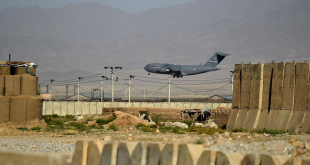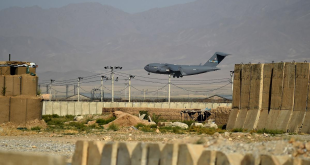AT
Kabul: Speaking during a TV program on Monday, Hassan Kazemi-Qomi, Iranian ambassador to Kabul and president’s special envoy on Afghanistan affairs, urged the ruling administration in Afghanistan to implement the 1973 Helmand River Treaty.
“The issue of the treaty is a legal issue, to which the Afghan government is committed and declared its adherence. It must also implement the treaty,” he said.
“The Islamic Republic’s government departments, specifically the Foreign Ministry, are following up on the people’s rights. I hope that this year the issue will be resolved,” Iranian media reported.
The Helmand River, the longest watercourse in Afghanistan, rises in the Hindu Kush Mountains west of Kabul and flows in an arc southwest until it empties out into the Hamoun wetlands, located in Iran’s Sistan and Baluchestan Province.
Following more than a century of rifts over Helmand’s water supply, Iran and Afghanistan signed the 1973 treaty, which established a means of regulating each country’s use of the river.
Iran should receive an annual share of 820 million cubic meters from Helmand under the accord.
Cutting off the Helmand’s flow into Iran, endangering the lives of many Iranians who rely on Hamoun wetlands for drinking water, agriculture, and fishing.
Recently Iranian President, Ebrahim Raisi, in a government board meeting instructed Iranian officials to seriously pursue the issue of the Helmand water treaty.
 Afghanistan Times
Afghanistan Times




